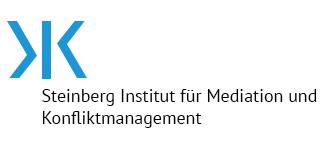Am 3. 10.2018 wurde die neue Empfehlung des Europarates zu „Restorative Justice in Criminal Matters“ angenommen. Damit wurde nach den ersten, bereits im Jahr 1999 vom Council of Europe erlassenen Empfehlungen → Recommendation No R (99) 19 „Mediation in Penal matters“ (Sept.1999) nun aktuelle Empfehlungen beschlossen, die die weltweiten Forschungsergebnisse und Praxisfelder zum Restorative Justice Ansatz berücksichtigen (hierzu vgl. Trenczek/Hartmann: Kriminalprävention durch Restorative Justice – Evidenz aus der empirischen Forschung; in Walsh et al. [Bundesministerium des Innern/Nationales Zentrum für Kriminalprävention] (Hrsg.) : Handbuch „Evidenzbasierte Praxis in der Deutschen Kriminalprävention – ein Leitfaden für Politik und Praxis“; Berlin 2018, 859 ff.). Leider ist der Text der Empfehlungen sowie eines sich darauf beziehenden Comments über die offizielle Internetseite des Council of Europe bislang nur über ein zugangsbeschränktes Login und zudem nicht in deutscher Sprache, sondern nur im englischen Original erhältlich, weshalb wir die entsprechenden Dokumente auf unseren Seiten (→ Arbeithilfen) bereit stellen:
Einige wesentliche Punkte der Empfehlungen seien an dieser Stelle hervorgehoben:
II: Definitions
3. “Restorative justice” refers to any process which enables those harmed by crime, and those responsible for that harm, if they freely consent, to participate actively in the resolution of matters arising from the offence, through the help of a trained and impartial third party (hereinafter the “facilitator”).
4. Restorative justice often takes the form of a dialogue (whether direct or indirect) between the victim and the offender, and can also involve, where appropriate, other persons directly or indirectly affected by a crime. This may include supporters of victims and offenders, relevant professionals and members or representatives of affected communities. Hereinafter, the participants in restorative justice are referred to, for the purpose of this Recommendation, as “the parties”.
III. Basic principles of restorative justice
13. The core principles of restorative justice are that the parties should be enabled to participate actively in the resolution of crime (the principle of stakeholder participation), and that these responses should be primarily oriented towards addressing and repairing the harm which crime causes to individuals, relationships and wider society (the principle of repairing harm).
14. Other key restorative justice principles include: voluntariness; deliberative, respectful dialogue; equal concern for the needs and interests of those involved; procedural fairness; collective, consensus-based agreement; a focus on reparation, reintegration and achieving mutual understanding; and avoiding domination. These principles may be used as a framework with which to underpin broader reforms to criminal justice.
15: Restorative justice should not be designed or delivered to promote the interests of either the victim or offender ahead of the other. Rather, it provides a neutral space where all parties are encouraged and supported to express their needs and to have these satisfied as far as possible.
16. Restorative justice is voluntary and shall only take place if the parties freely consent, having been fully informed in advance about the nature of the process and its possible outcomes and implications, including what impact, if any, the restorative justice process will have on future criminal proceedings. The parties shall be able to withdraw their consent at any time during the process.
17. Restorative justice should be performed in a confidential manner. The discussions in restorative justice should remain confidential and may not be used subsequently, except with the agreement of the parties concerned (see Rule 53).
